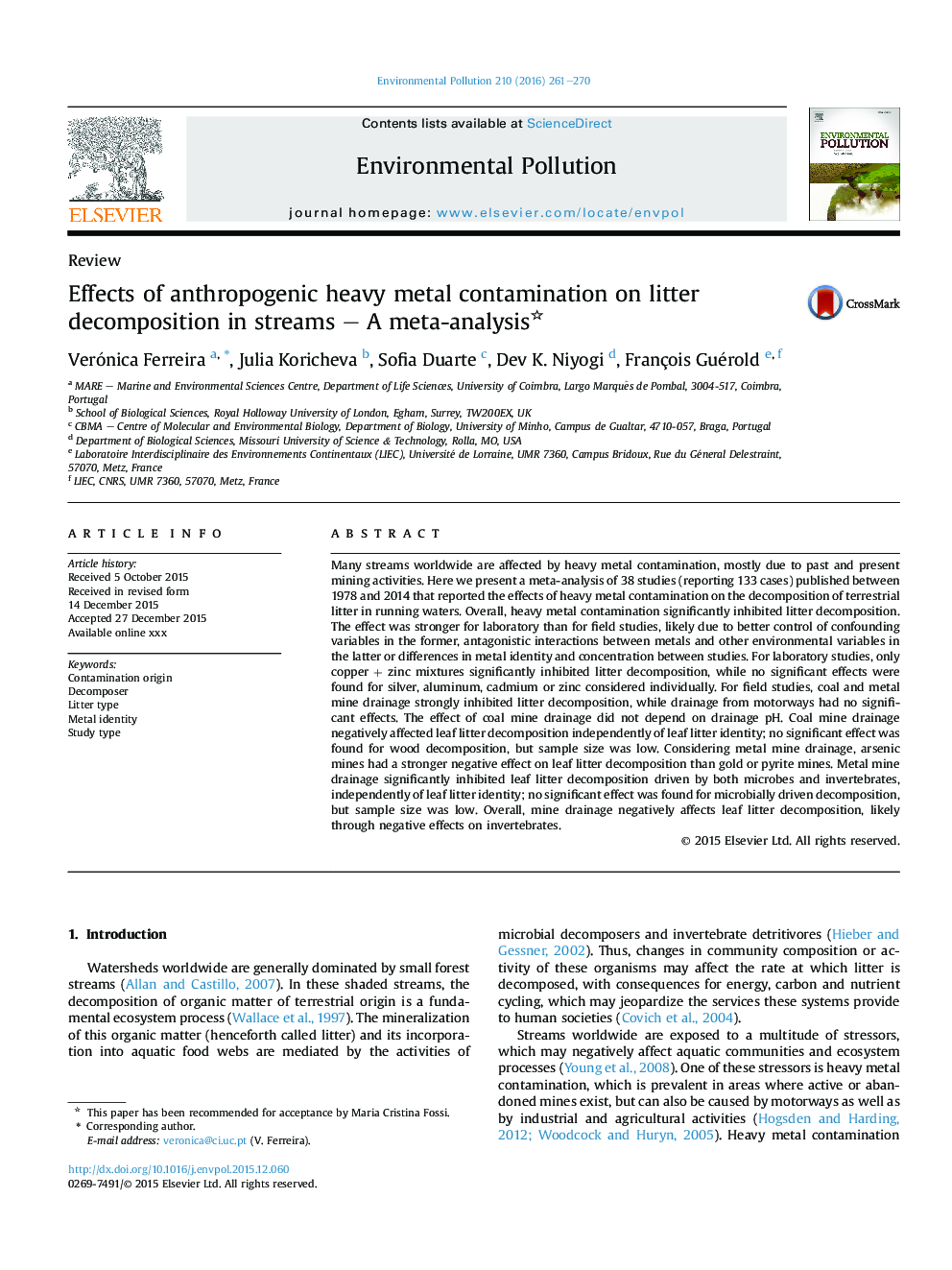| Article ID | Journal | Published Year | Pages | File Type |
|---|---|---|---|---|
| 6315129 | Environmental Pollution | 2016 | 10 Pages |
Abstract
Many streams worldwide are affected by heavy metal contamination, mostly due to past and present mining activities. Here we present a meta-analysis of 38 studies (reporting 133 cases) published between 1978 and 2014 that reported the effects of heavy metal contamination on the decomposition of terrestrial litter in running waters. Overall, heavy metal contamination significantly inhibited litter decomposition. The effect was stronger for laboratory than for field studies, likely due to better control of confounding variables in the former, antagonistic interactions between metals and other environmental variables in the latter or differences in metal identity and concentration between studies. For laboratory studies, only copper + zinc mixtures significantly inhibited litter decomposition, while no significant effects were found for silver, aluminum, cadmium or zinc considered individually. For field studies, coal and metal mine drainage strongly inhibited litter decomposition, while drainage from motorways had no significant effects. The effect of coal mine drainage did not depend on drainage pH. Coal mine drainage negatively affected leaf litter decomposition independently of leaf litter identity; no significant effect was found for wood decomposition, but sample size was low. Considering metal mine drainage, arsenic mines had a stronger negative effect on leaf litter decomposition than gold or pyrite mines. Metal mine drainage significantly inhibited leaf litter decomposition driven by both microbes and invertebrates, independently of leaf litter identity; no significant effect was found for microbially driven decomposition, but sample size was low. Overall, mine drainage negatively affects leaf litter decomposition, likely through negative effects on invertebrates.
Keywords
Related Topics
Life Sciences
Environmental Science
Environmental Chemistry
Authors
Verónica Ferreira, Julia Koricheva, Sofia Duarte, Dev K. Niyogi, François Guérold,
